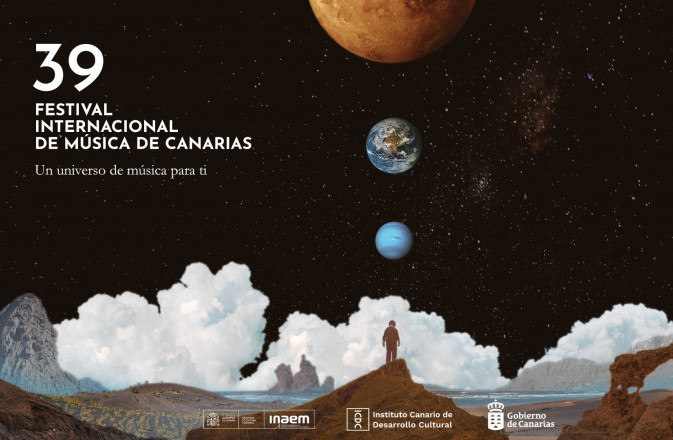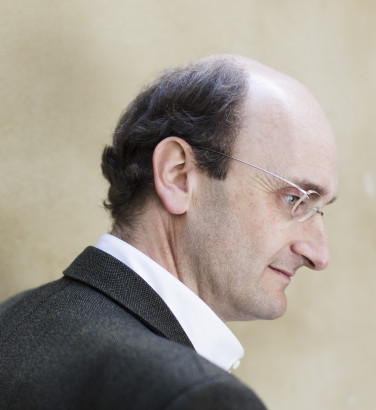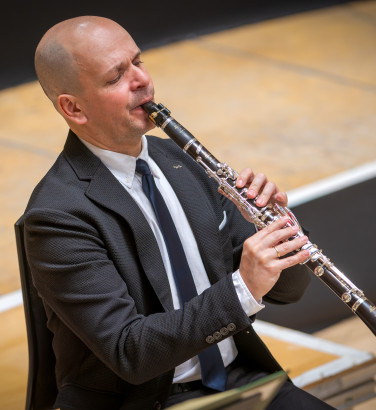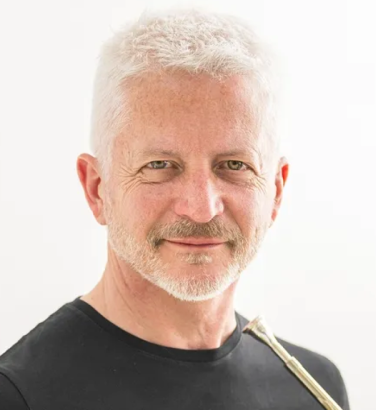
André, Marta and Maxi: "the main difference is the speed at which we work"
11 Jan 2023
News Story
This is a translation of an interview with André, Marta and Maxi carried out in Spanish: click here for the original version.
The Scottish Chamber Orchestra is delighted to be playing at the 39th Festival Internacional de Música de Canarias this winter. To celebrate, it seemed only right to sit down with our three Spanish players – Principal Clarinet Maximiliano Martín, Principal Flute André Cebrián and newly-appointed Sub-Principal Flute Marta Gómez – for a chat about musical life in Scotland and Spain …
What brought you to Scotland?
Maxi: I went to London to study at the Royal College of Music in 1997. At the end of my studies, I obtained the post of Principal Clarinet in the SCO in 2002 and since then have been living and working in Edinburgh.
André: Several friends had spoken very highly of the Orchestra and when the post of Principal Flute became open, I decided to come and try my luck. On the very same day of the audition I had already fallen in love with Edinburgh. I was very happy when I started my trial period with the Orchestra, the first one being during the Edinburgh International Festival (I had never seen anything like it in my life) and the second in October (when I was able to discover the Highlands). I realised during this period that my friends were quite right about the Orchestra, and when I was offered the position a few weeks later, it was an easy decision to make.
Marta: I spent several years working freelance and having auditions in various countries. A few months ago, I came to Scotland for the first time and was lucky enough to win the audition and be invited to join this marvellous orchestra.
How does the classical music scene differ from back in Spain?
Marta: I haven’t yet got a clear idea of the Scottish scene as I have only just arrived here. But in comparison with other places where I have worked, I feel that Scotland considers a connection with the public to be very important, trying to adapt the format of concerts to suit different audiences.
André: In Scotland, I see that music plays an important part in society. I am very moved to see how the public responds to the breadth of culture available. And it’s almost moving to see for example that the activity of the SCO is not limited solely to Glasgow and Edinburgh, but that every year they reach out to all parts of Scotland. In Spain the orchestras usually limit their concert activities to one single auditorium, with no consideration for people in the rest of the area. I feel that in Spain, there is still considerable prejudice against classical music, and that perhaps with social and educational projects (like the SCO’s Creative Learning) we could begin to break down these barriers.
Maxi: Things move more slowly in Spain because of the rhythm of work. There is always time for everything. In the UK in general, the rhythm is much faster, there are fewer rehearsals and fewer days. There is a great deal of musical quality in both places, a high standard and good orchestras, but the main difference for me is the speed at which we work.
Maxi and André, is there anything you miss about Spain which you can’t get in Scotland?
Maxi: After so many years in Edinburgh you get used to everything, but if I were to say I missed the tiniest thing, even slightly, from my country and above all the Canary Islands, it would be sunlight.
André: I have lived in other countries in which I have missed a lot of Spanish things but the truth is that I feel very happy in Scotland, the people are very friendly and day-to-day life is very pleasant. Of course I wouldn’t be sorry if we had a few more days’ sunshine, but I must admit that Galicia, where I am from, has a fairly similar climate to that of Scotland.
What do you think you will miss about Spain, Marta?
Marta: My family. And of course the food!
… and what are you most looking forward to in Scotland?
Marta: I am looking forward to learning about Scotland: its wildlife, its customs, its people. Making music with great artists in such a special place is a real privilege.
When you go back to Spain, Maxi and André, what do you miss about Scotland?
André: The truth is that since living in Scotland, I’ve spent very little time in Spain and I’ve hardly had time to miss very much. In fact, when I have free weeks, I very often decide to spend time in Scotland to get to know the country better. I suppose that I’m doing that so as miss as little as possible of Scotland.
Maxi: When I eventually return to Spain, I would definitely miss the people of Scotland. I have always been made to feel very welcome in Edinburgh, as this is a cosmopolitan city that knows how to treat foreigners well. This also goes for Scotland in general.
Finally, is there any Spanish music you feel should be better known abroad?
André: Spanish folklore is very rich and varied, and very present in our day-to-day lives. At the beginning of the 20th century, many Spanish composers (Falla, Albéniz, Granados, Turina, Toldrá) used this music because it reflects the country’s character, culture and tradition, to incredible results. In the last few decades, we now have new generations of Spanish composers who are producing really interesting works.
Marta: I believe that we have a great heritage although it is not played or heard very much, even in Spain. Composers such as Arriaga, García Abril, Brotons, or Bretón, for example, have left us very high quality music which is worth discovering.
Maxi: I feel that any country’s music is international and can be easily accessible thanks to the internet. Composers like De Falla, Albéniz, and Turina (whom I love) are known worldwide. Now, a whole new generation of interesting young Spanish composers is perhaps getting more attention, like Coll, Sanchez Verdu, Vega, Torres, Sotelo and Trujillo, among others.
The Scottish Chamber Orchestra’s Canaries tour is made possible through Scottish Government funding and generous support from Gavin and Kate Gemmell.
Related Stories
![]()
Andrew Manze: "I've always loved Viennese waltzes and polkas"
1 December 2025
Our Principal Guest Conductor is really looking forward to conducting our Viennese New Year concerts!![]()
Maximiliano Martín: "A friend said 'Gnarly Buttons would suit you very well'"
10 November 2025
Ahead of his performance of John Adams' Gnarly Buttons, we spoke to our Principal Clarinet about performing as soloist with the Orchestra.![]()
Quickfire Questions with Kenneth Henderson
7 November 2025
Get to know our new Principal Horn!



